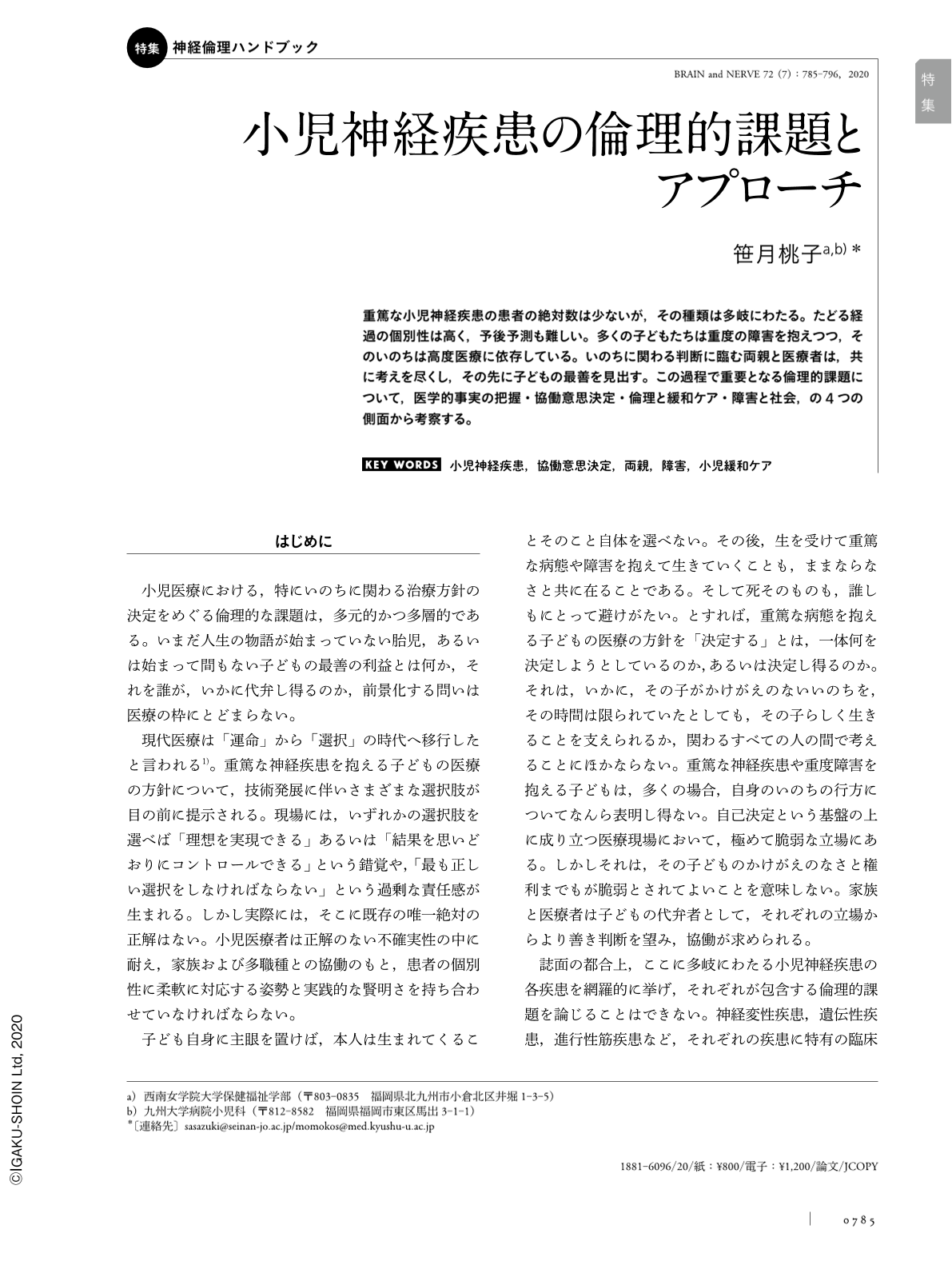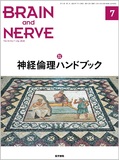Japanese
English
- 有料閲覧
- Abstract 文献概要
- 1ページ目 Look Inside
- 参考文献 Reference
重篤な小児神経疾患の患者の絶対数は少ないが,その種類は多岐にわたる。たどる経過の個別性は高く,予後予測も難しい。多くの子どもたちは重度の障害を抱えつつ,そのいのちは高度医療に依存している。いのちに関わる判断に臨む両親と医療者は,共に考えを尽くし,その先に子どもの最善を見出す。この過程で重要となる倫理的課題について,医学的事実の把握・協働意思決定・倫理と緩和ケア・障害と社会,の4つの側面から考察する。
Abstract
There are various types of serious pediatric neurological diseases, although the absolute number of children with either of them is small. These children often have life-threatening conditions with severe disability and rely on medical technologies. Each child follows a different illness trajectory, which makes it difficult to predict his/her prognosis. Given the multiple treatment options, it becomes harder to know when “enough” is enough and what is best for the child. When it comes to critical decision-making, we, as healthcare providers, need to develop a trustful relationship with the parents and promote shared decision-making to fulfill their child's best interest. It is crucial to know what the parents hope and fear, and provide them with access to comprehensive, evidence-based information about their child's current and potential healthcare needs. In this article, four complex ethical issues are reviewed. A broad and constructive discussion is long awaited to ensure that these children's lives are enhanced to their best potential and treated with dignity in our society.

Copyright © 2020, Igaku-Shoin Ltd. All rights reserved.


